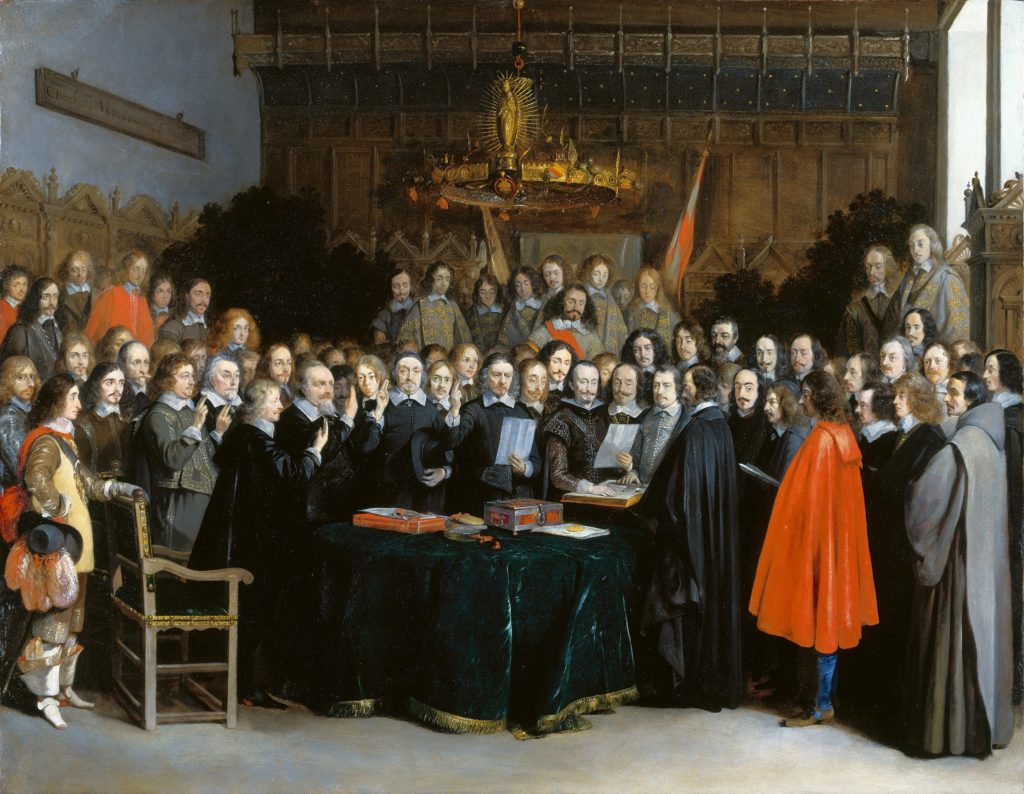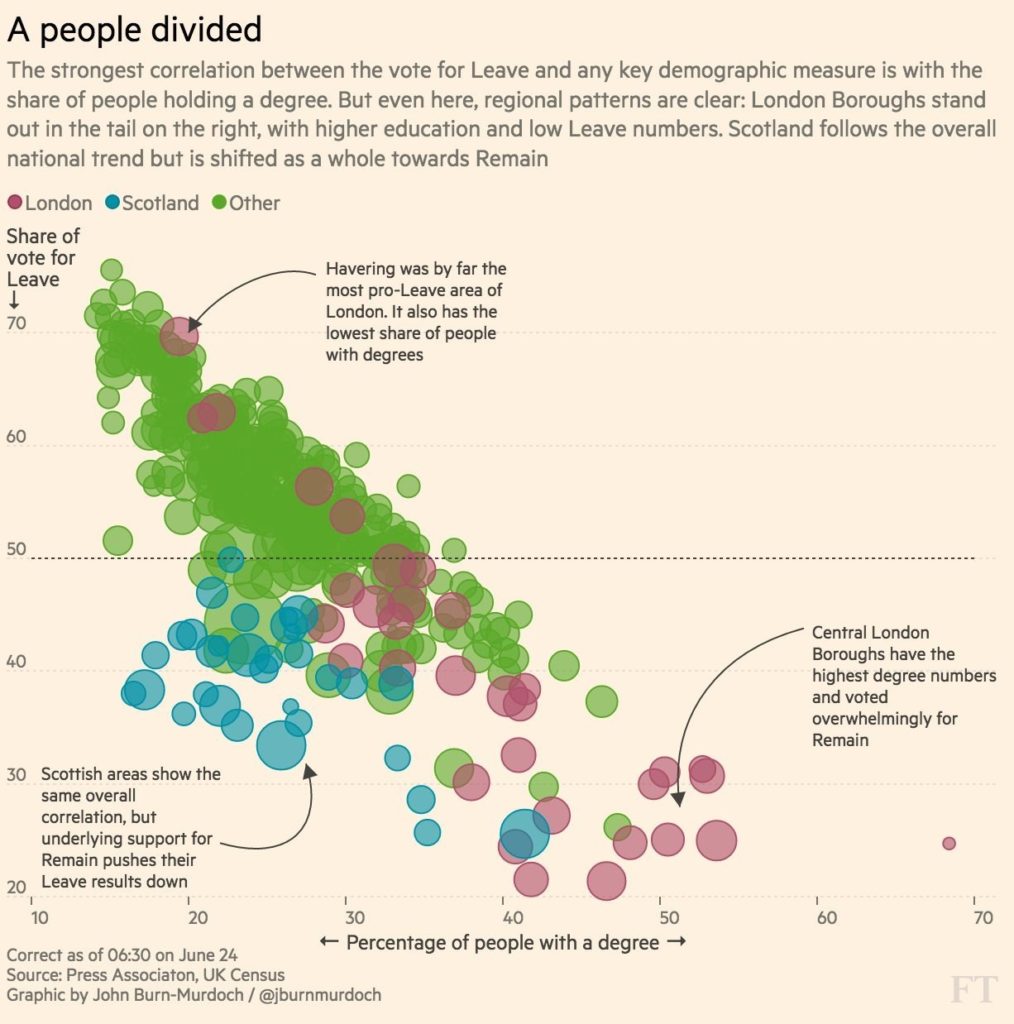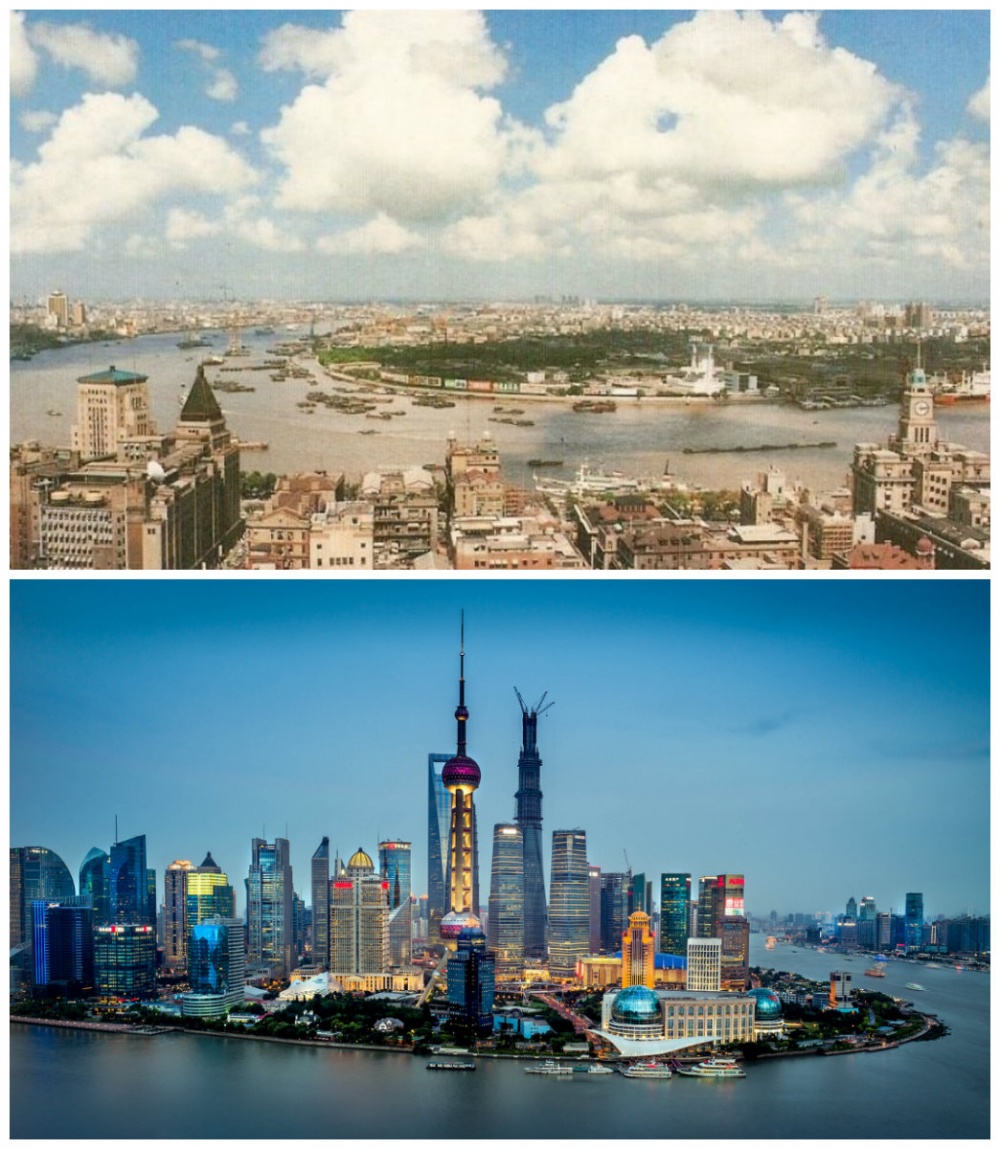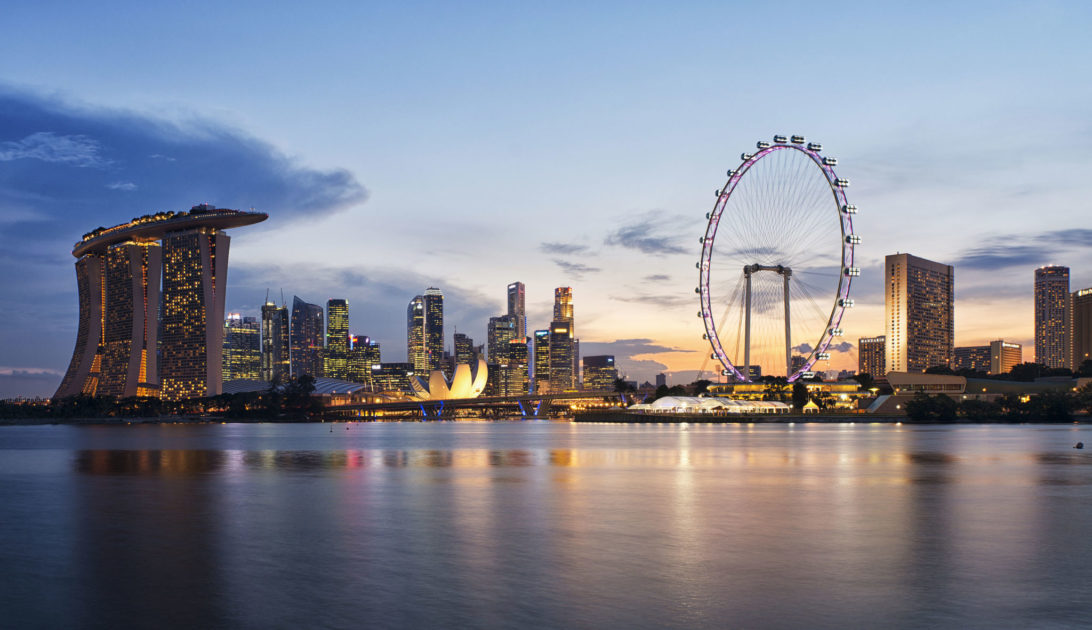Around 700 days since 51.9% of the participating UK electorate voted to leave the EU and around 500 days since Donald J. Trump was inaugurated as 45th president of the United States (with a disappointingly small turnout), I’m beginning to make sense of it all. After months of endlessly reading articles on the subject of ‘What on Earth is Happening to Politics’, debating with friends, and (according to my fiancée) obsessively following Trump’s tweets, I’m finally feeling a little less clueless than before. This is probably less owed to the insightfulness of Trump’s twitter feed than the state of disbelief and despair it’s inadvertently inducing, which ultimately propelled me to read and debate even more. Since BuzzFeed has taught the world that absolutely anything can be written as a list of ‘3 Unbelievable Facts You Won’t Believe’, I’m taking a page from their book and will let you in on my discovery that absolutely anything in the world right now can be explained by the following 3 mega-trends:
- The demise of the nation-state
- The division between globalists and nationalists
- An emerging multi-polar world
Of course, all of these are linked, making figuring out where cause and effect lie a little more tricky but bear with me for now. The first point is actually the headline of a recent article in The Guardian: “The demise of the nation state” by Rana Dasgupta. Although it fails to give any radically new ideas about ‘What on Earth is Happening to Politics’, it gives a sense of the current mood in globalist Elitistan, which is something akin to the hangover after an excessive party. “After decades of globalisation, our political system has become obsolete – and spasms of resurgent nationalism are a sign of its irreversible decline.“, writes its author Rana Dasgupta optimistically. The pious readers of The Economist have now been partying on and off since at least 1989, so one would expect the hangover to kick in eventually. What about the financial crisis you might ask? Sure, that was a major hiccup but the controlled, global, unified response to it was equally unprecedented and has even led some to speculate that a form of ‘World Government‘ may be just around the corner. Almost 10 years later, I wrote a blog post about what has changed since then but increasingly one could be forgiven for responding to the suggestion of a world government vis-a-vis a #failing United Nations and even the demise of nation states themselves with a succinct LOL.
Dasgupta writes that “20th-century political structures are drowning in a 21st-century ocean of deregulated finance, autonomous technology, religious militancy and great-power rivalry.” and that “big data companies (Google, Facebook etc) have already assumed many functions previously associated with the state, from cartography to surveillance”. These are interesting observations, exemplified by Facebook CEO Mark Zuckerberg’s almost comical congressional hearing. Showing how hopelessly clueless US lawmakers apparently were about Facebook’s operations or business model, the hearing highlighted who is increasingly in charge of how society is organised in the 21st century and the laws that govern our societal structure. Despite the fact that senators were shocked, shocked!, that Facebook’s entire business model is built around commercialising their user data, they also seemed to have no clue about the global reach and power of such a supranational organisation.
This slightly disturbing display of incompetence at best or recklessness at worst brings us back to ‘the demise of the nation state’. It seems that governments have not only willingly given up control over their countries and markets through deregulation but also been undermined in their influence by technology and their inability to keep up with it. Where governments used to own and control key infrastructure such as telecommunications, railway and power companies, they are now barely allowed access to a potential terrorists’ iPhone because of encryption technology and are generally scrambling to enforce the rule of law around the interwebs. More than that, it is often not even clear where a government’s jurisdiction lies and ends given the supranational nature of the internet itself and also, increasingly, that of companies and (dual+) citizens. Are traditional forms of how we organise ourselves as a society (read government) hopelessly outdated and gradually obsolete altogether?

At this point it may be worth diving a little bit deeper into the term ‘nation state’. It’s important to remind ourselves that as a general form of state organisation this is really a product of only the last 100 years. In the old days, the world was ruled by empires (colonial ones such as the British; or territorial ones such as the Russian). In terms of major milestones towards a ‘community of nations’, we can consider The Treaty of Berlin in 1878 (7 signatories), the 1919 Treaty of Versailles (32 countries), and the United Nations (now 193 members). Of course, the birth of the first ‘nation state’ dates back even further. This moment is widely considered to have been the The Ratification of the Treaty of Münster, one of the treaties leading to the Peace of Westphalia. Signed between May and October 1648 in the Westphalian cities of Osnabrück and Münster and effectively ending the Thirty Years’ War between Catholics and Protestants and the Eighty Years’ War between Spain and the Dutch Republic, the peace negotiations involved a total of 109 delegations representing all major European powers. After wars spelled the death of around eight million people, the thousands of diplomats and support staff that attended these conferences worked out a concept of ‘nationhood’ that more or less holds until today. It was a good idea.
In his paper Rethinking the sovereign state model, Dr. Stephen Krasner of Stanford University notes1:
The Westphalian model, based on principles of autonomy and territory, offers a simple, arresting, and elegant image. It orders the minds of policymakers. It […] posit[s] that states can be treated as if they were autonomous, unified, rational actors. It […] is a benchmark for observers who discern a basic erosion of sovereignty in the contemporary world.
This little tangent helps me to make the following point: The concept of a ‘nation-state’ is an artificial one, which has been invented by us for no other purpose than to avoid conflict and introduce clarity into tribal power dynamics. Governments, which sit on top of such nations, elected or unelected, traditionally had an interest in serving ‘their nation’ because their personal fate was vaguely linked to that of ‘their nation’, be it due to the fact that they were elected leaders or simply because even a despot was only as high up in the global food chain as the military or economic power of the country they ‘serve’. This worked especially well once citizenship and visa rules were introduced to keep people inside ‘their nations’ and form a bizarre emotional bond with millions of people they have never met called ‘patriotism’. This was then sold to people as the ultimate virtue and worked remarkably well when the time came to convince everyone to patiently line up and voluntarily turn themselves into cannon fodder.
The concept of citizenship itself is pretty ridiculous if you take a step back and think about it. This is why Dasgupta also calls it the “primordial kind of injustice in the world” in his article. He makes the case that since 97% of citizenship is inherited it only exacerbates the state of inequality even at birth.
If you are born Finnish, your legal protections and economic expectations are of such a different order to those of a Somalian or Syrian that even mutual understanding is difficult. […] Deregulating human movement is an essential corollary of the deregulation of capital: it is unjust to preserve the freedom to move capital out of a place and simultaneously forbid people from following.
As the world is shrinking through affordable air-travel, the free flow of capital, supranational business and, increasingly, multi-national and multi-ethnic families, the traditional nation-state is ill-equipped to tackle any of the arising problems. This has already produced a class of globalists who are in a way arbitraging the outdated system of nationhood by working and living wherever the best opportunities lie, regardless of their citizenship. To exacerbate this trend, globalists are of course also dating globally, offering a larger selection pool to produce offsprings, which will be even more advantaged from the day they are born, possibly with multiple languages and passports as Elitistan’s welcome present.
Making things more confusing, nationalist, populist leaders are often globalists in disguise, rendering their publicly voiced political views cynical at best or outright Machiavellian at worst. Nigel Farage, populist at large and Brexiter in chief, was married to a German woman and his two children from that marriage are, of course!, enjoying all the benefits of dual citizenship. Nick Clegg, another British politician, although of the more savoury kind given that he opposed Brexit from his position, is married to a Spaniard and his children, of course!, enjoy the benefits of dual citizenship as well. I mean, why wouldn’t you? When Roman Abramovich was finally fed up with queuing at the British embassy in Moscow to wait for his endlessly delayed visa, he simply got Israeli citizenship and was back in London for fish in chips before British officials could read in the newspaper that he’s probably not paying for that fancy new £1bn Chelsea stadium anymore.
Crucially, however, the globalist or aspiring globalist population is not a negligible fringe group anymore. At this moment around 700’000 people are up in the air, crisscrossing the globe on jet planes. There are now entire cities substantially made up of globalists (think Singapore) and, ironically, even nation states catering to their needs (think off-shore wealth destinations such as Bermuda, the Cayman Islands, etc.). It is easy to see why all of this can be perceived by nationalists who are still trapped in their nationhood thinking as mounting unfair advantages enjoyed by the global elites. It’s because they are! This results in the ongoing 21st century class struggle that has only just begun, giving us populist backlashes around the world.
That brings us to point 2: The division between globalists and nationalists.
This division is a real test for old-fashioned democracies as they are run today. The European Union was launched with the idea that it would become a supranational structure, another layer on top of the regular ones such as city, state and country. It assumed that people would over time be willing to put on another hat on top of the many other hats they’re already wearing. One can be a Catholic French person from Marseille for instance, who likes Camembert and supports the PSG football team. It’s not a far stretch to think that our Camembert-loving friend might add another adjective to his identity and become a European as well. That works in theory – at least grammatically it’s not a major problem. The problem comes from the fact that identity is more sticky for some than for others and it has split society pretty much in half in many places. It’s become a divisive issue in the U.K. with Brexit, which literally broke the political process. Below you can see the voting pattern for Brexit.2

Here, the EU was just an example. The divide between globalists and nationalists is induced by many other factors as well such as socioeconomic class (the often-touted ‘winners’ and ‘losers’ of globalisation). What can be observed almost universally, however, is that the divide is also a geographical one – one between cities and rural areas – almost more than anything else. City-dwellers tend to be of the liberal globalist sort, whereas country-folk are statistically much more conservative and nationalist in their political views. This marks a growing rift among societies of countries where people are increasingly seeing that they have less in common with their compatriots than their fellow globalists or nationalists abroad. Just like an Emanuel Macron can travel to the US and have a beer with investment bankers (more likely, a glass of French wine – even globalism has its limits), communicating in fluent English about matters of international finance, so can a Steve Bannon travel to France and, ironically, rally a crowd of right-wing nationalists.
Even though this was never completely true, it is becoming clearer and clearer that our nationality doesn’t define our values or even our world view. Of course, the interwebs has contributed massively to this. It took little interconnected devices that fit in our pocket and allow us to communicate with anyone in the world for us to realise that when we look up from our screens we don’t have nearly as much in common with the people around as, as those we just found, for example, on a furry-fetish appreciation forum. What has long been predicted is finally happening: The internet is tearing down borders. Not physical borders quite yet but the borders we had in our minds and it was always only going to be a matter of time until this sentiment hit national politics along with the inevitable political backlash.
Like in any national identity crisis before, nationalists now tend to flock to ‘strongman’ politicians that defend their ‘national identity’ and ‘way of life’ against ‘intruders’. In a review of Yascha Mounk’s book The People vs. Democracy, which explores an increasing disconnect between society and the organs by which it is organised, The Economist wrote3: “Democracy is going through its worst crisis since the 1930s. The number of countries that can plausibly be described as democracies is shrinking. Strongmen are in power in several countries that once looked as if they were democratizing, notably Russia, Turkey and Egypt. The United States―the engine room of democratization for most of the post-war period―has a president who taunted his opponent with chants of ‘lock her up’ and refused to say if he would accept the result of the election if it went against him.”
The resulting populist political landscape, which we are now seeing to emerge couldn’t come at a worse time. This is because we are entering the age of a multi-polar world, thus bringing me to point 3.
We are entering the age of a ‘new world order’, something I’m referring to in my review of Henry Kissinger’s biography by Niall Ferguson. Most decades since WWII have been dominated by geopolitical hegemony between the Western bloc and the Soviet bloc. The madness of MAD (punintended) worked because it was a simple game of two more or less rational players. As we know from physics, introducing a third, fourth, etc. entity or particle to our system can suddenly turn it from neatly predictable to out-of-control complex. In a nutshell, this is gradually beginning to shape geopolitics in the 21st century and what makes nuclear weapons proliferation all the more threatening. With two large players following a bit of game theory and the deterrent, which is mutually assured destruction (MAD), we can all still sleep well at night. Once you add North Korea, Iran and other non-aligned players to the mix, the risk of disaster grows dramatically.
This could lead us relatively quickly into a fairly technical discussion of stable equilibria and game theory. Despite the fun of such mathematical models though, the vast majority of academic papers I have read on the current political situation conclude that with a rising China as a credible counter-force to the US-led world order, we are plainly entering an era of uncertainty. In a world of multiple superpowers it is simply unknowable if or what kind of stable equilibrium might emerge over time. There are too many variables to the problem to make any meaningful prediction.
It has already become clear that unless she is willing to go to war, the US is about to lose its military control over the South China Sea and that it will also allow Chinese control over Taiwan and other disputed regions. After all, Russia has taken Crimea forcefully without too devastating a backlash since the West is awfully busy managing its own decline with pesky internal affairs such as Brexit, Migrants and Trump. Idiotically, it is now about to wager a trade war against its former ‘Allies’ and common defenders of the rules-based system it helped create.
As Gideon Rachman explores in his book ‘Easternisation: War and Peace in the Asian Century‘, the Thucydides trap is often referred to when political analysts point to the risk of conflict between an ascending power (China) and a declining power (the US). In one anecdote, the author mentioned an invitation along with a Western group of eminent people such as former prime ministers, billionaires and leading academics to China. At one point of their visit they were ushered into a hall and lined up like schoolchildren before being allowed to take a group photo with Chinese president Xi Jinpin. After president Xi shook a few hands, Franics Fukuyama, a famous academic among the delegation, gasped ‘I touched him!’ in mock awe. This and other anecdotes from the book illustrate nicely how quickly a multipolar world has emerged and with what confidence its new actors are beginning to engage on the world stage.
Businesses have long understood this and seized the opportunity to not just manufacture their goods globally but also to sell them in dynamic new economies. Homo globalis was equally quick to make use of his or her multiple citizenships and skills to profit but many others have looked on as their local job-market changed so rapidly that they were left without a relevant role to fill and only with a faint idea of what has been happening in Shanghai’s Pudong area during the same time.

The emerging multipolar world and the arrival of ever more members of the species homo globalis stirs up fears among many citizens who see traditional jobs lost and prices of real estate and other goods around them inflate beyond their means. While populist politicians such as the current US President are seizing the opportunity by playing into nationalists’ fears, they are doing nothing to address the underlying issues. This is a time for philosopher kings to rule, for politicians who understand those fears while also having the wisdom to play to the better angels of our nature (in reference to Steven Pinker’s book).
Expecting wisdom to rule and fractures in our society as well as globally not to be turned into hate and warfare has never been a safe bet for very long throughout history. Given the significant dislocations caused by the demise of the nation-state, the division between globalists and nationalists and the emerging multi-polar world as well as seeing the kinds of politicians getting elected in response to all this can only leave one’s outlook bleak. The ones who stand to suffer least from any major fallout are those in cushy, globalist Elitistan who are already gobbling up passports and properties in New Zealand with the obligatory nuclear fallout bunkers to go with it. As we’ve seen with Nigel Farage, even nationalist agitators would rather be safe than sorry when it comes to their own lives and root for global options.
- Stephen D. Krasner. 2001. Rethinking the sovereign state model. Review of International Studies. 27, 17–42.
- From Twitter, by Financial Times, graphic by John Burn-Murdoch / @jburnmurdoch. https://pbs.twimg.com/media/ClsW-YmVAAAg8gK.jpg
- The Economist. Mar 15th 2018. Print edition | Books and arts. The People vs Democracy: Why Our Freedom is in Danger and How to Save It. By Yascha Mounk.
